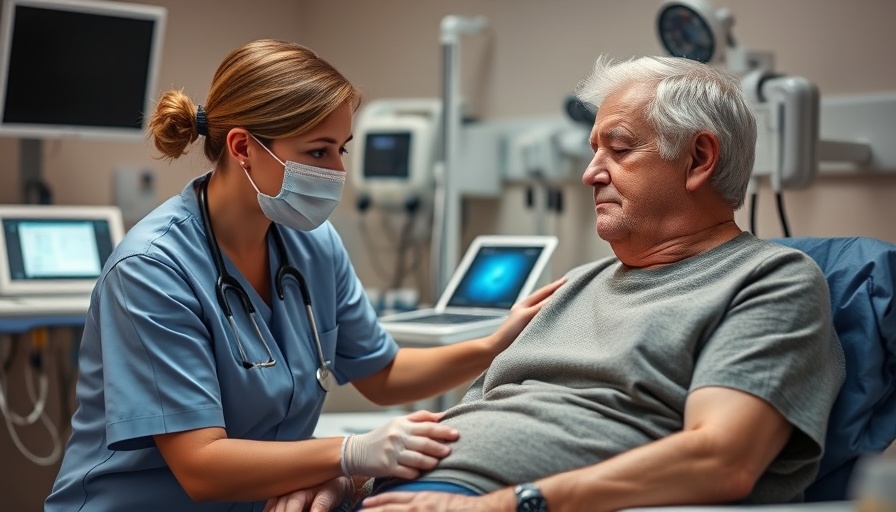
Unlocking New Avenues in Post-Stroke Speech Recovery
Recent research from the University of Calgary unveils transformative insights into stroke recovery, specifically addressing post-stroke aphasia, a condition affecting speech due to brain damage. Within a double-blind study involving 44 participants, researchers explored how combined treatment with transcranial magnetic stimulation (TMS) and intensive speech therapy can significantly enhance speech recovery. For individuals like Lucy Mulloor, who faced the life-altering effects of a stroke, this research offers newly discovered hope in the pursuit of effective communication.
Understanding Aphasia and Its Impact
Aphasia can be devastating, stripping individuals of their ability to speak, understand, read, and write. Each year, approximately 795,000 people in the U.S. suffer strokes, and a significant number face related disabilities such as aphasia. Traditional speech therapy provides some level of recovery, yet many patients experience minimal improvement long after their stroke event. Thus, advancing therapeutic techniques is critical for enhancing recovery outcomes.
Transcranial Magnetic Stimulation: A New Frontier in Therapy
The dual approach of TMS alongside intensive speech therapy showcases promising results. TMS involves a non-invasive procedure using magnetic fields to stimulate nerve cells in the brain. Researchers discovered that when used within a structured therapy framework, TMS may help invigorate areas of the brain associated with language processing, optimizing speech recovery in patients with aphasia.
The Study's Methodology: Insights and Findings
Diving into the details, the study divided participants into two groups: one receiving actual TMS treatment, while the other was given a sham treatment with no active stimulation. Over two weeks, both groups engaged in more than three hours of speech exercises daily, focusing on multimodality aphasia therapy techniques. Those receiving the genuine TMS exhibited notable improvements in their verbal capabilities compared to the control group.
Community Health and Wellness: The Broader Impact of Research
As advancements in health and wellness increasingly tie into community initiatives, the insights from this research resonate beyond individual recovery. Health and wellness centers and local initiatives in cities like San Antonio are keen to integrate cutting-edge therapies such as TMS into their offerings. This holistic approach encourages community health by promoting accessibility to innovative treatments that support recovery.
Future Predictions: The Path Ahead for Stroke Rehabilitation
Looking forward, the integration of TMS in stroke rehabilitation programs could drastically reshape recovery strategies for those with aphasia. As researchers continue to investigate the long-term effectiveness of this combined approach, there lies an exciting potential for a broader application within the realm of alternative medicine and holistic therapies. This could also open up discussions surrounding insurance coverage for such treatments, making them more accessible.
Empowering Patients: Emotional and Human Interest Perspectives
The emotional journey of recovering from a stroke encompasses psychological, social, and physical dimensions. Patients like Mulloor exemplify resilience and the need for emotional support systems alongside medical interventions. Personal stories of perseverance can serve as inspiration for others navigating similar paths, shedding light on the importance of community support in health and wellness endeavors.
Call to Action: Stay Informed and Get Involved!
The findings regarding TMS and its impact on speech recovery inspire numerous opportunities for patients, families, and health professionals to engage in ongoing discourse about stroke rehabilitation strategies. If you, or someone you know, seeks to learn more about innovative health and wellness options available locally, consider participating in community health events, seeking out wellness centers, or joining support groups. Your proactive steps may offer opportunities for healing and connection, benefiting not just individuals, but entire communities.
 Add Row
Add Row  Add
Add 




 Add Row
Add Row  Add
Add 


Write A Comment